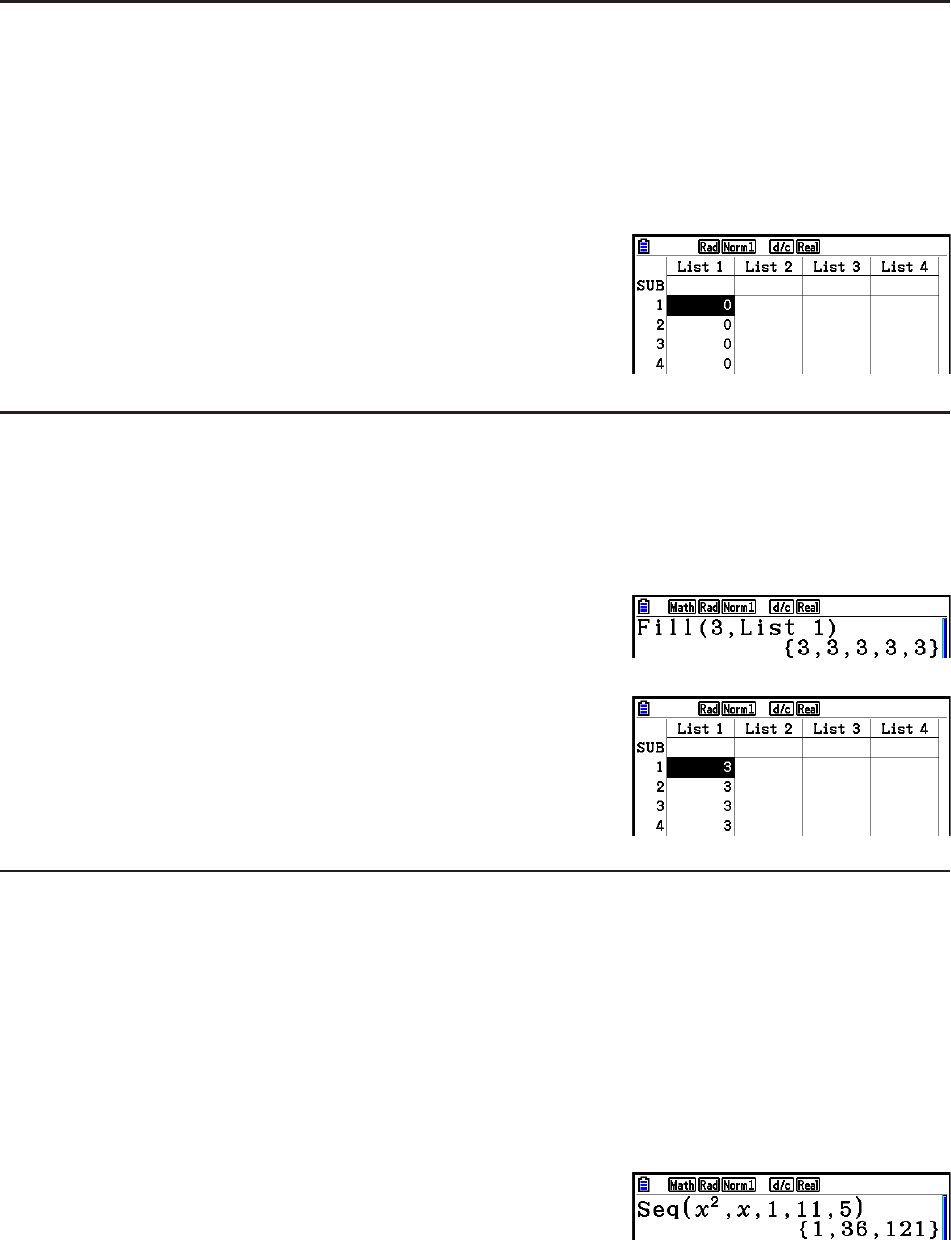
CASIO
3-9
u To create a list by specifying the number of data items [OPTN] - [LIST] - [Dim]
Use the following procedure to specify the number of data in the assignment statement and
create a list.
<number of data
n > aK1(LIST) 3(Dim) 1(List) <list number 1 - 26> w ( n = 1 - 999)
Example To create five data items (each of which contains 0) in List 1
AfaK1(LIST) 3(Dim)
1(List) bw
You can view the newly created list by entering the
Statistics mode.
u To replace all data items with the same value [OPTN] - [LIST] - [Fill(]
K1(LIST) 4(Fill( ) <value> ,1(List) <list number 1 - 26> )w
Example To replace all data items in List 1 with the number 3
AK1(LIST) 4(Fill( )
d,1(List) b)w
The following shows the new contents of List 1.
u To generate a sequence of numbers [OPTN] - [LIST] - [Seq]
K1(LIST) 5(Seq) <expression> , <variable name> , <start value> , <end value>
, <increment> )w
• The result of this operation is stored in ListAns Memory.
Example To input the number sequence 1
2
, 6
2
, 11
2
, into a list, using the function
f ( x ) = X
2
. Use a starting value of 1, an ending value of 11, and an
increment of 5.
AK1(LIST) 5(Seq) vx,
v,b,bb,f)w
Specifying an ending value of 12, 13, 14, or 15 produces the same result as shown above
since they are less than the value produced by the next increment (16).


















